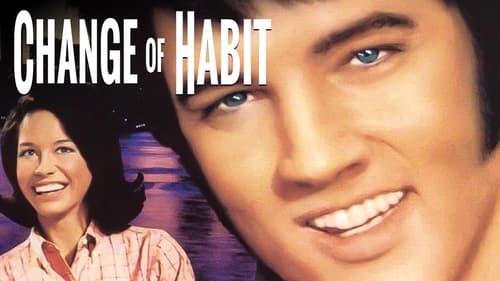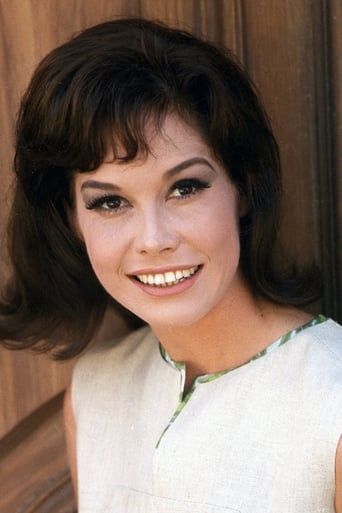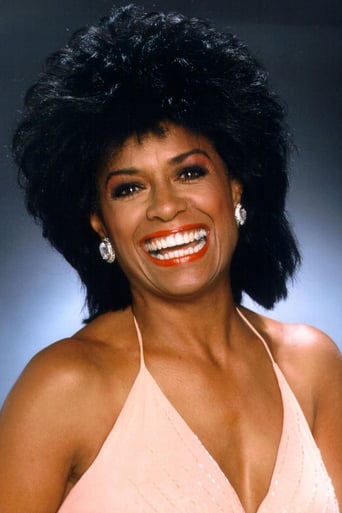Mjeteconer
Just perfect...
Kien Navarro
Exactly the movie you think it is, but not the movie you want it to be.
Marva
It is an exhilarating, distressing, funny and profound film, with one of the more memorable film scores in years,
hackraytex
A lot of us who were born in the 50's can remember what we were doing on two events. The day John F. Kennedy was assassinated and the day Elvis Presley died. I had just gotten home from work and my then wife told me that it just came over the TV that Elvis Presley had died. A very heartbreaking day.We have learned so much about what was going on in Elvis Presley's life over the years because he was very private with his personal life which we are all entitled to.We now know that he desperately wanted material better than the beach movies that he had been stuck in and wanted to do drama like with King Creole and Flaming Star. It is so ironic and tragic that what turned out to be his last movie was the dramatic part that he had been begging for over the years. This could have been the breakthrough for a much more rewarding period and his growth as an actor.I like to think that he decided to take a break from acting for a few years to concentrate on his singing and return to acting with this as his launching pad. I have read that he was thinking of cleaning house and finally breaking with Parker since that would have freed him from the straitjacket that he had been in. I read that he also had decided to stop gorging on junk food and start working out again. Maybe if he had not gotten divorced he could have avoided what we now know as severe depression and losing control of his eating and not continuing to work out and take care of himself. Since he had announced that he was getting married again to Ginger Alden, he had not given up on life and was making plan for the future.A Change Of Habit gives us a glimpse of what could have been. Rest in peace Mr. Presley.
classicsoncall
If I thought about it long enough I could probably come up with a more surreal casting decision for a movie, but since I just watched "Change of Habit" my mind has gone a bit blank. I would never have considered Elvis Presley and Mary Tyler Moore opposite each other in a conflicted romance, but that's what you get here when Moore puts on, or should I say, takes off her nun's habit and goes to work with Barbara McNair and Jane Elliott at Dr. John Carpenter's ghetto clinic. The trio are *secret agents from the Little Sisters of Mercy*, a term used in the picture which I didn't make up, but wish I had.But you know, after what I thought was a false start with Presley's rendition of 'Rubberneckin', the picture settled in with a surprising portrayal of social issues that was just beginning to see treatment in film back in the Sixties. The topic of racism was broached with Sister Irene's (McNair) description by one of the elderly neighborhood busybodies as 'black as the ace of spades'. Over the course of the picture, the good sister decides to break out of her 'safe' role as a nun to become a community agitator on behalf of the barrio folks, taking on the Ajax Market and the usurious Banker (Robert Emhardt). She wins tenuous approval from the self styled Black Panther types who earlier challenged her 'blackness' before they knew she was a nun.On the flip side however, I had to wince at the suggestion of Dr. Carpenter's 'rage reduction' therapy as a way to cure autism. Even though the session with Presley and Moore attempting to instill love in the little girl Amanda was touching, the miraculous 'cure' was something quite out of the Old Testament, and did little service to the decades long search for treatment of this serious affliction.For old timers like myself, the picture is a fairly fascinating period piece taking me back to the time of my teenage youth in the Sixties. Thirty cents for three ice cream cones in the park was a major shock to my system while viewing it today, along with eighty nine cents a pound for beef stew and boneless chuck at the Ajax. Rheingold and Piels Beer were on prominent neon display in the local bar; can you still get those today? And shades of Woodstock, did you catch the priest at the chancery office exchanging peace signs with Sister Barbara? Perhaps the biggest kick I got out of watching the picture was fast forwarding a year ahead to 1970 with a couple of precursors to the popular 'Mary Tyler Moore Show'. Didn't they use Miss Moore's pass from the touch football game in the park at the start of that show? And how about Ed Asner showing up as the neighborhood police lieutenant to make peace at the street festival? All pretty cool, but there WAS one reference that wound up leaving me to scratch my head - has anyone else ever heard of noodle ring?
Brian Camp
I watched CHANGE OF HABIT for the first time on January 8th to commemorate the 75th anniversary of Elvis Presley's birth. It's quite a change of pace for the star, an attempt to mix social commentary with an Elvis musical. It doesn't quite work, largely because the script and the direction, products of the old Hollywood studio mindset, clash with the young performers and the ideas in the story that were clearly in sync with the tenor of the times. Had they gotten a younger, more innovative director, it might have worked. But that can be said about so many of Elvis's movies.The basic premise is sound. The three nuns in the film played by Mary Tyler Moore, Jane Elliot, and Barbara McNair have clearly defined professional skills and a strong commitment to using them to help the disadvantaged. The women are unquestionably sincere and quite admirable and courageous. Their characters provide the emotional core for the story of a free clinic operating in a multi-ethnic ghetto neighborhood. From a production standpoint, the casting direction and some of the background work offer an authenticity quite rare in a studio product of the time. Despite being shot largely on the Universal Studio backlot (the New York street set), the street life portrayed has a rhythm and level of noise and aggression that wasn't often convincingly captured in studio productions. There are a large number of black and Latino performers in the cast and not a single one of them looks like they stepped out of Central Casting. A cute Puerto Rican actress, Laura Figueroa, plays a 17-year-old street girl who has the hots for Elvis. One of the black militants who confronts Barbara McNair's Sister Irene is played by Ji-Tu Cumbuka, who went on to quite a number of important roles in black-themed films and TV shows (e.g. UP TIGHT, TOP OF THE HEAP, "Roots"). There's even a street fair with a Latin band that resembles events I used to attend in the South Bronx back in the day.The one significant false note in the casting is the inclusion of two stock old white lady characters (played by Doro Merande and Ruth McDevitt) who stick their heads out of the windows regularly to cluck their disapproval, as if they'd been held over from the Frank Capra road company. Hollywood veteran Regis Toomey (who was actually in a Capra movie, MEET JOHN DOE) is on hand as a grumpy old parish priest who antagonizes the nuns, but, to its credit, the film refuses to soften the character or make him one of those stock Irish priests with a kind word and a useful homily for every situation. Instead, he's presented as a man fearful of his parishioners and clearly out of step with the times. In another interesting casting touch, Ed Asner turns up as an enlightened beat cop who speaks Spanish to the street's residents. Cult favorite Timothy Carey (THE KILLING) plays a surly butcher who regularly cheats the customers.There are some alarming elements on display, though. In one scene the doctor played by Elvis takes a young autistic girl of about five or six into his arms and manhandles her in a bout of "tough love," urging her to get her "anger" out. To a modern viewer it looks an awful lot like child abuse. (As another comment here points out, this was an attempt to dramatize a now-discredited treatment method called "rage reduction therapy.") At one point, Elvis tries to dissuade the nuns from working in his clinic with a jaw-dropping line that has to be heard to be disbelieved: "The last three nurses who worked here couldn't take it. Two of them were raped, one even against her will." Later, an attempted rape of one of the nuns at knifepoint by a disturbed patient is brushed off quite casually. Maybe they assumed it wasn't "against her will." Also, this has to be the only Elvis film where you hear the words, "faggot," "bitch" and "nigger." (And it was rated "G," to boot!)While Mary Tyler Moore does an excellent job as Sister Michelle, who is torn between her love for Jesus and her love for Elvis, I can't be so generous in assessing Elvis' performance. He's quite charismatic, despite the inappropriate hairstyle and wardrobe, but he holds back in every scene. With a better script and direction, the role of an embittered Vietnam veteran who carries out his moral obligation to a dead soldier by becoming a doctor to help the poor could have been a breakout performance for the singing star. Instead, Elvis comes in, reads his lines with a minimum of involvement and refuses to express the emotions that the character must surely be feeling. What happened? Why didn't he step up to the plate and knock this one out of the park? He had it in him. Instead, this was his last acting job. All I see now is sad, wasted potential. It hurts.
Ankhoryt
One star for Elvis, one for Mary Tyler Moore, four stars for good intentions in depicting the racism, violence, and crime (particularly loan sharking in the character of The Banker) afflicting the poor. The other four stars are lost because of the relentless sexism the writers perpetrated while addressing practically every other -ism out there (even the inclusion of two significant minor characters with disabilities.) "What do you think we are, faggots?" This is the line from one of the men whose been enticed to move furniture after one of the nuns dresses like a prostitute and hollers "I need a man!" to try to get some help from the idlers across the street. Seriously. She puts on sheer black stockings, hooker lipstick and hair, and pulls her dress down off her shoulders. (Remember, this movie is not supposed to be one of Elvis' farces; we're supposed to take this seriously.) The faggot remark comes after she suggests the piano is very heavy. The nun apparently doesn't understand the comment, or chooses not to. Maybe by identifying homophobia with alcoholic ne'er-do-wells, the writers were trying to cast aspersions on that point of view; maybe that's as "out" as they could be about it.The Hispanic characters are depicted with some sympathy. The black nun, Irene (Barbara McNair), is trapped in a stairwell by two black activists who accuse her of "selling out" to "those ofay chicks" (that means white, if you haven't heard it before, and is a reference to the two white nuns), gets into a squabble about "Negro" v. "Black" and is told by the men that's she's too pretty not to stay pretty - a threat to mutilate her unless she... what? Unless she becomes a black separatist? What's the scene for, to identify black men as just generically all-purpose menacing? Well, yes, but only *angry and political* black men, contrasted to the woman's nose-to-the-grindstone apolitical and assimilationist work ethic. It's depressing to realize that yes, for its time, this probably *was* progressive. (In a later scene, Irene bluntly discusses the n-word with the Elvis character; that was *definitely* progressive back then!) Eventually, the black activists demonstrate peaceful intentions.So maybe, as some of the other commenters suggest, this was a serious attempt at being progressive racial and social justice commentary. The big bad however, here, is that the movie relies very heavily on sexual stereotyping. The nuns are subjected to the hateful misogynist Father Gibbons, the one who imitated the hooker is nearly subjected to what certainly sounds like it could develop into a gang rape "party" from the men who moved the furniture, and the young doctor treats his nurses very poorly indeed when they are just his office "girls" before he learns they are nuns.Also troubling, but not at all the movie's fault, is the diagnosis of a child as autistic "because she was rejected by her mother" - a theory totally discredited now - and the reliance on "holding" therapy, also discredited. "Holding" therapy has gotten children killed via suffocation, so don't try this at home. It's creepy to see it, even though the writers and producers did not know better at the time.But about the sexism, yes indeed, they did know better. By 1969, the Second Wave of feminism had been underway for several years and it's annoying to see MTM here, as she often was in "That Girl," forced to play a 50's stereotype as the 70's were about to begin.HIGHLIGHTS: A very young Ed Asner is a stitch as the neighborhood cop; if you're a fan, you won't want to miss his too-short, too-few scenes. Also, anyone who remembers the fury of pre-Vatican II Catholics at the inception of "guitar Masses" will be delighted by Elvis' rendering of same.






